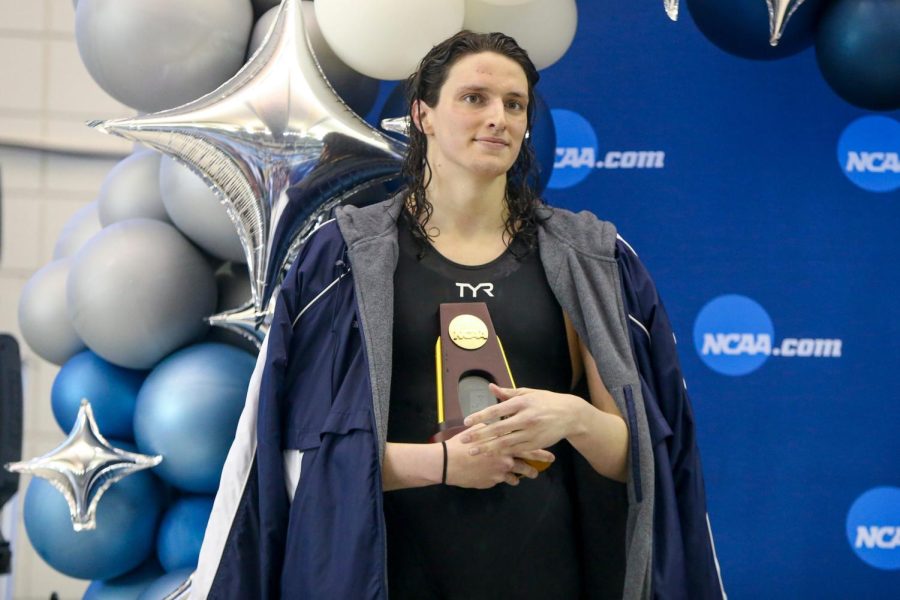Lia Thomas’s NCAA Championship Win Sparks Debate
April 6, 2022
Lia Thomas is a transgender swimmer at the University of Pennsilvania. Her dominating times this season have created much skepticism. Although she follows all eligibility rules set in place by the NCAA, her achievements sparked a controversial conversation of inclusion and fairness in sports.
At the recent NCAA Women’s SwimmingChampionships in Atlanta, GA, Thomas finished a full second and a half ahead of Olympian Emma Weyant in the 500-yard freestyle. This made Thomas the first openly transgender athlete to win a Division One title.
Junior Ali Pfaff is a swimmer at RCHS. Pfaff is a member of the Roanoke Gators swim team and most recently placed second at Seniors Championships in the 100-yard backstroke.
“I think Lia’s win was fair and deserved. She followed NCAA requirements and was cleared to swim,” said Pfaff. “She worked hard and has immense natural talent.”
Protesters on both sides, for or against Thomas, have made their views known in and outside the McAuley Aquatic Center, where the Championships took place. Those standing by her have suggested that the blame should more so fall on the NCAA, not Thomas.
“I understand where the athletes’ frustration is coming from but I do not believe it should be directed at Lia,” said Pfaff. “Any problems they have with it should be directed at the NCAA, not Lia herself.”
The opposing arguments suggest that Thomas had an unfair advantage from undergoing male puberty and years of testosterone production. These factors contribute to the argument that the biological female swimmers competing are at a disadvantage.
Mary Looney is a former Auburn University All American swimmer and a current Board Of Directors member for Friends Of Rockbridge Swimming, Inc.
“I do not feel that she [Lia Thomas] should be allowed to compete as a woman. I do not think this is fair to other female competitors, her size and muscle mass is greater than other competitors,” said Looney. “I do not know what the solution is. Perhaps if you have previously competed as a male at a certain level Regional Championships, you are not eligible to compete as a female.”
Thomas will continue to compete in the NCAA Women’s Division, despite the controversy, unless further action is taken.








